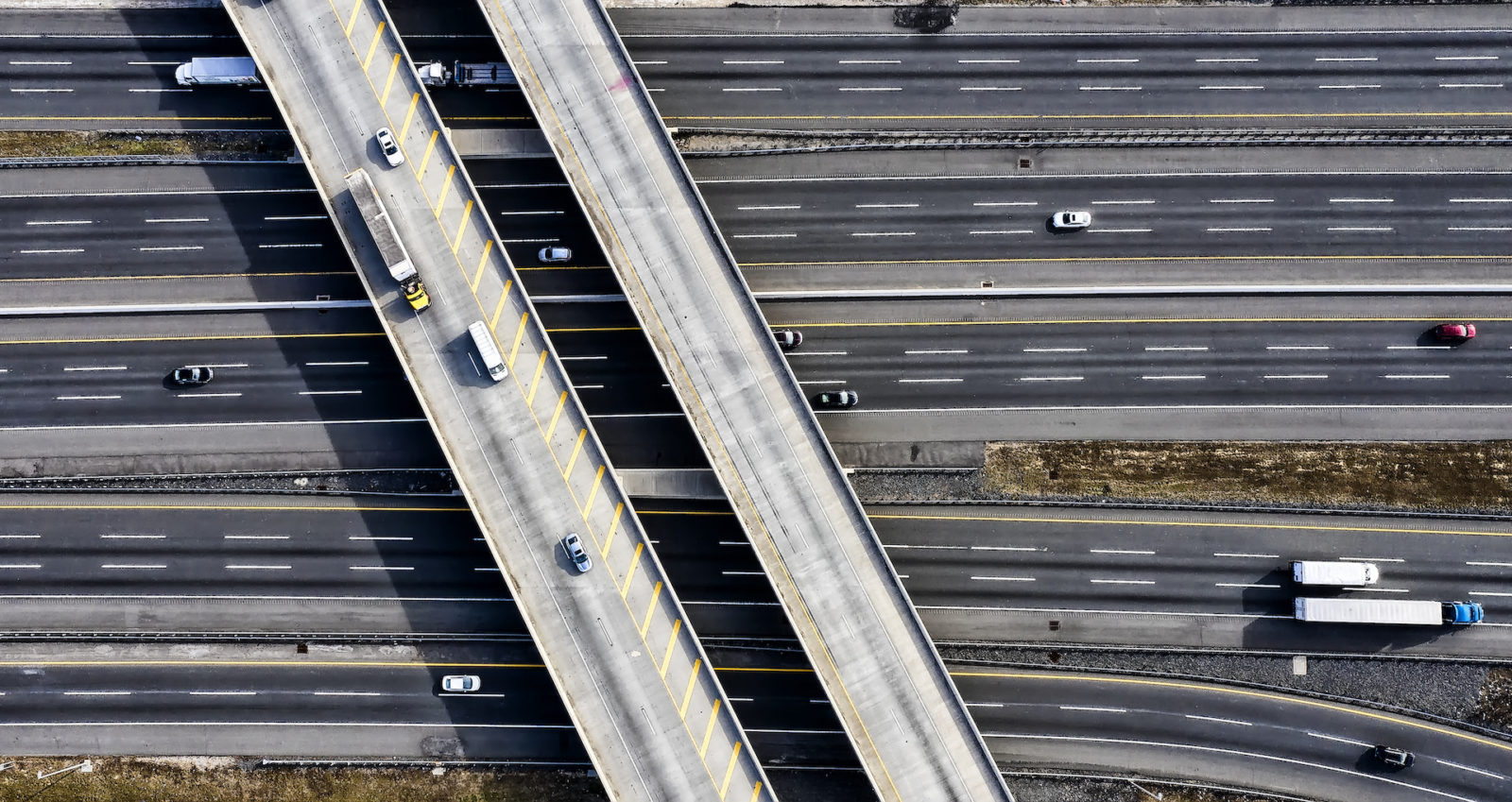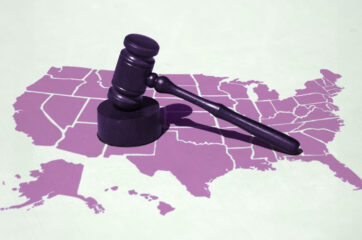Recently, the State of New Jersey has seen notable progress in addressing the climate crisis and environmental injustice. With a history of toxic pollution, environmental discrimination, and inequitable burdens across both race and class, New Jersey has begun to address injustices through policy. Community activists and environmental advocates have worked tirelessly with policy-makers to encourage executive and legislative action, hoping to unlock innovative solutions. New Jersey has started taking steps to blend climate action and restorative justice by minimizing air pollution in overburdened communities.
On February 16th, Governor Phil Murphy signed Executive Order 221, which directs a $100 million investment of proceeds from the state’s participation in the Regional Greenhouse Gas Initiative (RGGI) — a regional cap-and-invest program — as well as the prosecution of Volkswagen for emissions cheating, to fund projects that:
- Improve air quality in overburdened communities, and
- Reduce emissions that affect our children’s air quality.
Overburdened community refers to… any census block group, as determined in accordance with the most recent United States Census, in which: (1) at least 35 percent of the households qualify as low-income households; (2) at least 40 percent of the residents identify as minority or as members of a State recognized tribal community; or (3) at least 40 percent of the households have limited English proficiency. (NJ Senate Bill 232)
More specifically, the $100 million investment will fund clean and equitable transportation projects with the aim of improving air quality in overburdened communities while reducing the effects of climate change. A recent press release details that the grants will support the electrification of garbage and delivery trucks, school and shuttle buses, the NJ TRANSIT bus fleet, as well as deploy fast-charging electric vehicle (EV) infrastructure across the state. The Murphy Administration has also demonstrated a commitment to environmental justice, evidenced by an allocation of $36 million targeted to reduce diesel and black carbon emissions in overburdened communities through the electrification of ports, cargo handling, and other medium-heavy duty equipment used in port and industrial areas.
Additionally, Executive Order 221 establishes both the Office of Climate Action and the Green Economy and the New Jersey Council of Green Economy. The Office of Climate Action and the Green Economy, within the Governor’s Office and will work to address climate change, invest in New Jersey’s clean energy future and expedite the transition to a green economy through a prioritization of equity and environmental justice. Initially announced as part of the Governor’s 2021 State of the State Address, the New Jersey Council of Green Economy will comprise members of State departments, organized labor, industry, utilities, environmental justice advocates, academia, small businesses, workforce development, and environmental advocacy. This announcement presents a potential vision for how a just, green recovery can function for all.
Despite the latest progress on addressing the climate crisis and environmental justice, New Jersey’s future did not always look so green. As recent as the previous Administration, climate progress in the State was stalled. Former Governor Chris Christie (R) withdrew the State from RGGI in 2012, in a politically-motivated move to appease the Republican Party. As a result, the State lost hundreds of millions in revenues between 2012-2018 and deprived NJ ratepayers the financial returns they previously had through RGGI participation. The recent announcement from Governor Murphy comes at an inflection point for the State, demonstrating that climate progress can also provide opportunities to redress historical injustices.
A Brief History of Environmental (In)Justice in New Jersey
The State of New Jersey has a long and devastating history of environmental injustice and environmental racism. In particular, a disproportionate burden of land, air, and water pollution has historically been borne by low-income communities and communities of color. Three key examples include the Newark Lead Crisis, as well as the disparity in both toxic waste sites and air quality concerns across the State.
Newark Lead Crisis
Tests back in June 2017 revealed widespread lead contamination across Newark — the State’s largest city — from corrosive, outdated lead plumbing infrastructure. Unfortunately, greater than 10% of homes were discovered to have been exposed to lead concentrations twice as high as what is considered safe under federal law. The current lead crisis in Newark is a direct result of environmental racism in both housing and job opportunities, particularly against Black communities. Systemic racism has left a legacy of imbalance that persists today, marginalizing communities of color and often granting them fewer resources and less attention. This leaves basic human rights unmet, such as access to clean water and reliable infrastructure. Of more than 100 water systems within the State with possible lead contamination, the municipalities most affected are primarily communities of color. For example, the City of Newark — one of the most affected cities in the State — is home to majority immigrant, Latinx, and Black residents, which has made it especially vulnerable to risks and hazards.
Back in June 2019, the Natural Resource Defense Council (NRDC) filed a lawsuit against the City of Newark for neglecting to address the lead problem and not putting more effort toward solving it. Tragically, the impacts of lead poisoning can have lasting physical and mental consequences, making the Newark Lead Crisis a devastating and enduring case of environmental injustice.
More on the Newark Lead Crisis from the League of Conservation Voters
Toxic Waste
New Jersey also has a long track record of permitting the construction of toxic waste sites, particularly in disadvantaged communities. Since the industrial revolution, the state has been a hub of dirty industries leaving behind a legacy of pollution that continues to this day. Despite being the fourth-smallest state, New Jersey is home to the greatest number of “Superfund” sites in the country. These are federally-designated sites in the United States which are extremely polluted and hazardous, necessitating long-term treatment to sufficiently minimize public health risks.
Low-income and communities of color bear a large share of the risk from Superfund sites in the State, representing a disproportionate amount of the more than 14,000 homes across the State at risk of toxic exposure.
Air Quality Concerns
Lastly, as the most densely populated State in the country, New Jersey also functions as a major transportation corridor connecting the Northeast and the Mid-Atlantic. This makes transportation New Jersey’s most carbon-intensive sector. On the bright side, this also means the transportation sector is particularly ripe for opportunities to both decarbonize and improve local air quality.
Transportation corridors, such as ports and highways, disproportionately burden low-income and minority populations. These populations are physically closer in space to sources of air pollution. Evidence of disproportionate impacts are made clear in the incidence of asthma-related emergencies. According to a study done by the State’s Department of Health, the rate of emergency visits due to asthma (per 100,000) is more than 4 times higher among Black residents than their White counterparts.
It’s clear that disadvantaged populations can often experience multiple vectors of environmental stressors through the land, air, and water upon which they depend to live. Last year, the COVID-19 pandemic and the Black Lives Matter Movement highlighted some of these unjust disparities and drew attention to the necessity to redress them.
A just recovery demands equity, justice, and opportunity for all. In an effort to limit future environmental injustices in New Jersey and ensure a just transition ahead, a diverse coalition of over 250 labor, faith, environmental, and justice groups advocated for and ensured the passage of historic legislation. Specifically, the New Jersey Environmental Justice Alliance (NJEJA), the Ironbound Community Corporation, and Clean Water Action (NJ) played integral roles in organizing the political will to lead New Jersey into becoming a national leader last year when it passed unprecedented environmental justice specific legislation to protect overburdened communities.
New Jersey Senate Bill 232
On August 18th, 2020, Governor Murphy signed into law one of the country’s most comprehensive bills to address the air, water, and land pollution that disproportionately burden’s the state’s low-income communities and communities of color.
Now, potentially major polluting projects are subject to an environmental justice impact assessment by the New Jersey Department of Environmental Protection (NJ DEP), which requires input from local residents before a project could move forward. According to Lee Clark from the League of Conservation Voters, this legislation “will help residents breathe a little easier and help reduce the disparate health outcomes experienced by [overburdened] communities.”
More on New Jersey’s Landmark Environmental Justice Legislation passed in 2020
This is Just the Beginning…
Environmental justice legislation and Governor Murphy’s recent announcements represent important pieces in a much larger puzzle toward getting New Jersey on the right track. There is still much work to do to ensure that low-income and communities of color have the same clean air and water as whiter, more affluent communities while properly ensuring equitable climate resilience planning. There are many opportunities ahead to make climate progress but equity and justice considerations are increasingly integral to success.
New Jersey faces important challenges in coordinating equitable climate solutions across state, regional, and national levels in the coming years. Notably, the State has encountered public resistance from its consideration of the Transportation Climate Initiative (TCI) — a regional collaboration of more than 10 states and the District of Columbia — which seeks to improve transportation, accelerate the clean energy economy, and reduce the transportation sector’s greenhouse gas emissions. Although Governor Murphy has declined to enlist New Jersey as an initial signatory state of the regional program, he has indicated that NJ will continue to evaluate the potential role of TCI in its climate change mitigation efforts.
Meanwhile, community advocates have criticized TCI for its failure to guarantee emission reductions in overburdened communities as well as its potential to raise fuel prices. A hike in fuel prices would have negative distributional effects, essentially representing a regressive tax that would disproportionately burden low to middle income households. In a recent press release Maria Lopez-Nuñez of the Ironbound Community Corporation asserts that TCI remains a false solution, saying “When we need bold, visionary action, TCI is barely a whimper. New Jersey must lead the way to real solutions that reduce emissions at source, include communities at every step and actually help New Jersey reach our climate targets during this crucial time,”.
In addition, New Jersey must properly navigate its role and properly position itself for key opportunities in the Biden Administration’s recently announced American Jobs Plan of 2021 — a $2 trillion multi-year federal plan to modernize the nation’s infrastructure. While the plan does prioritize environmental justice and equity, New Jersey must balance its own policies and align them along collective, national interests in the years ahead.
New Jersey’s next test will be ensuring that the state’s green recovery and transition can be both equitable and just in practice.









